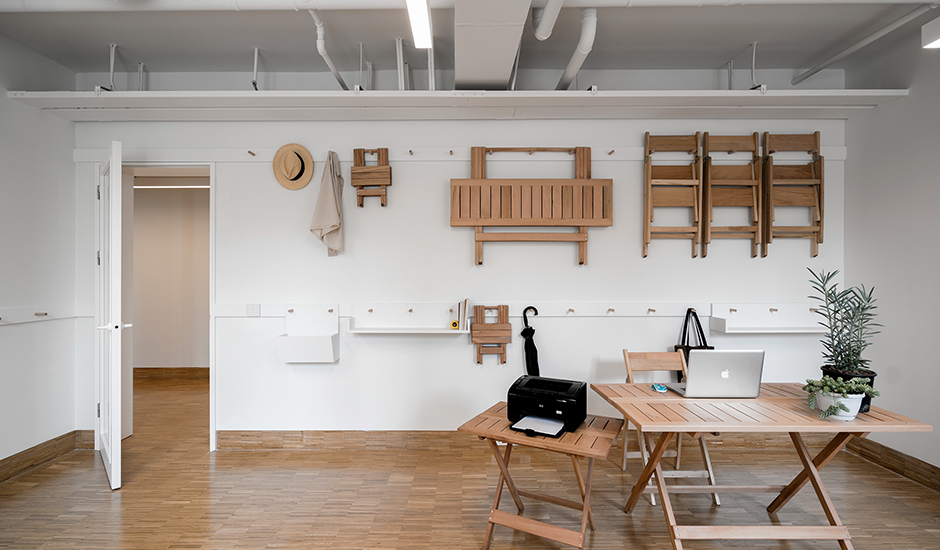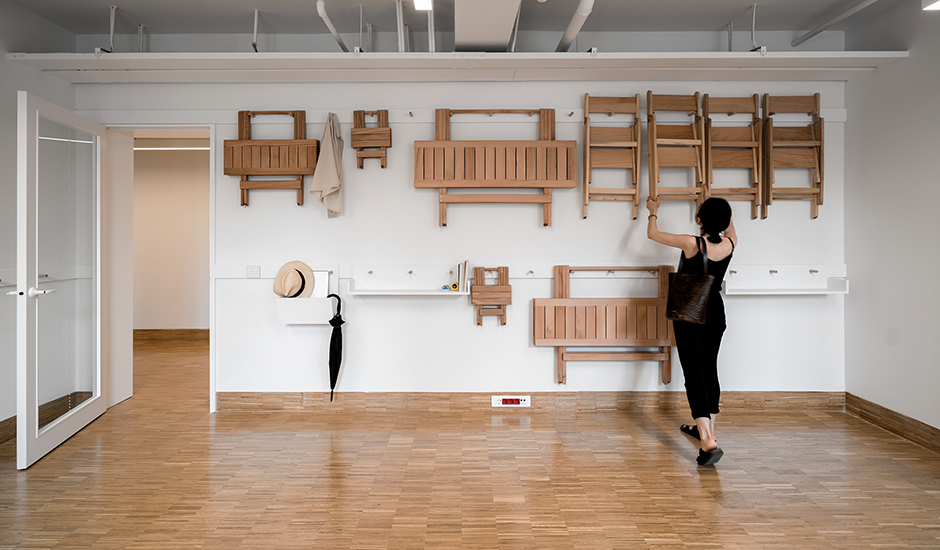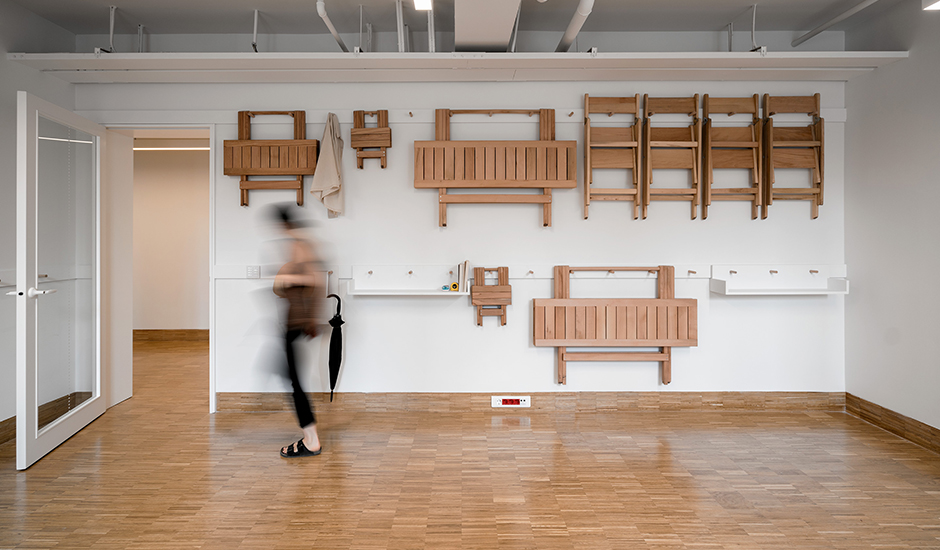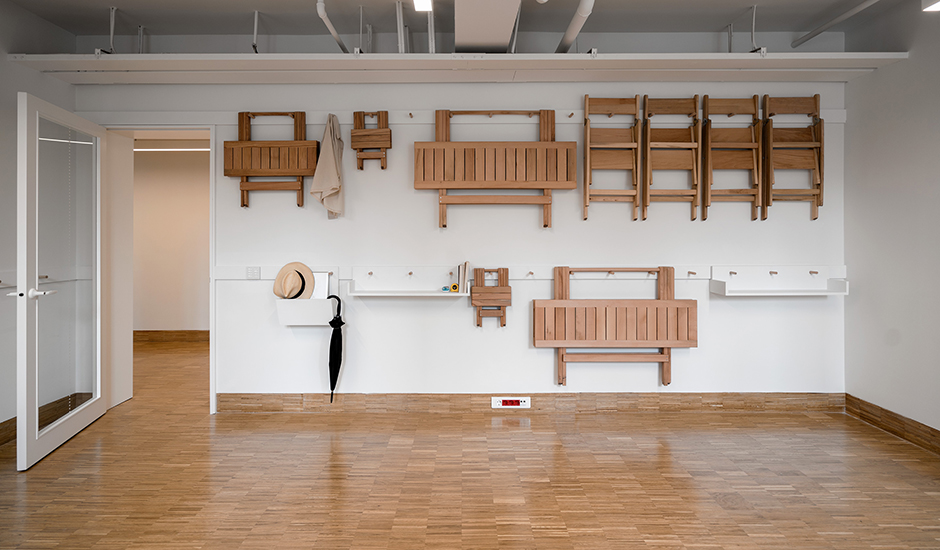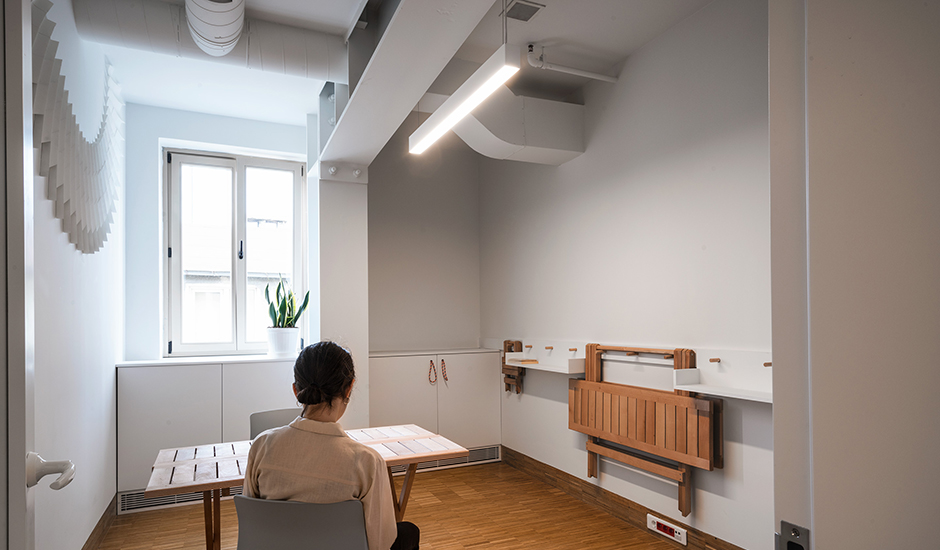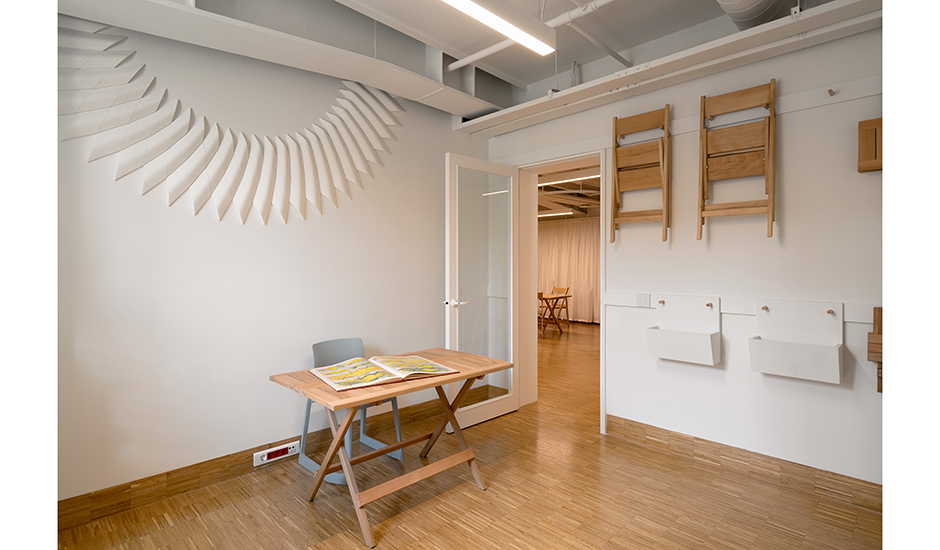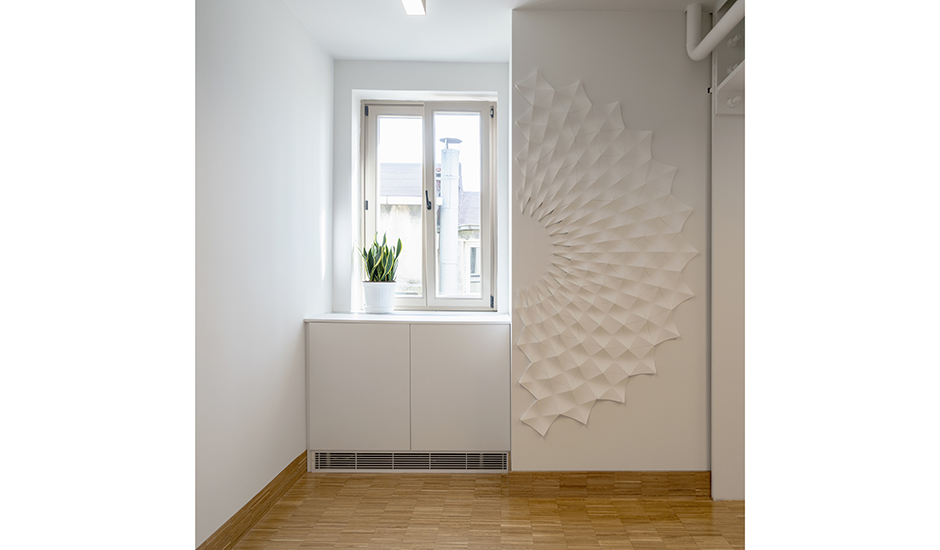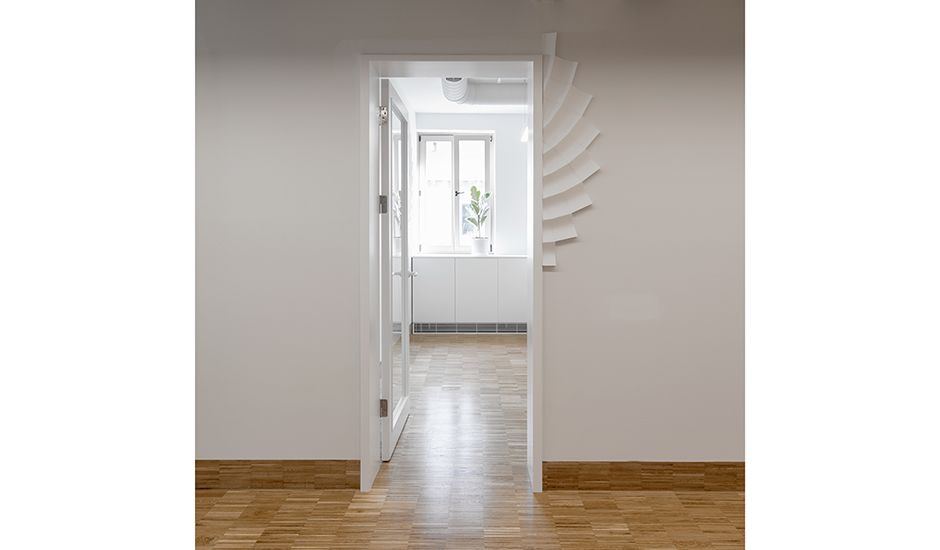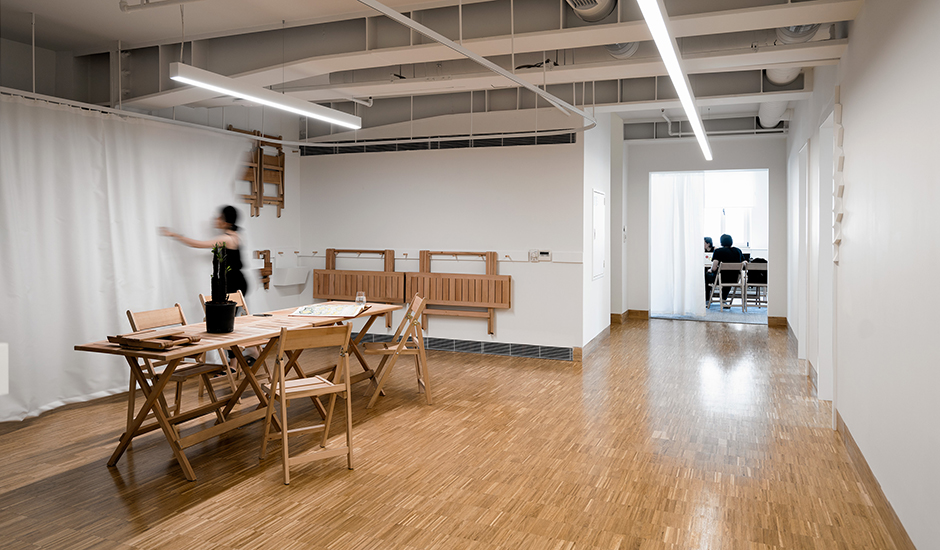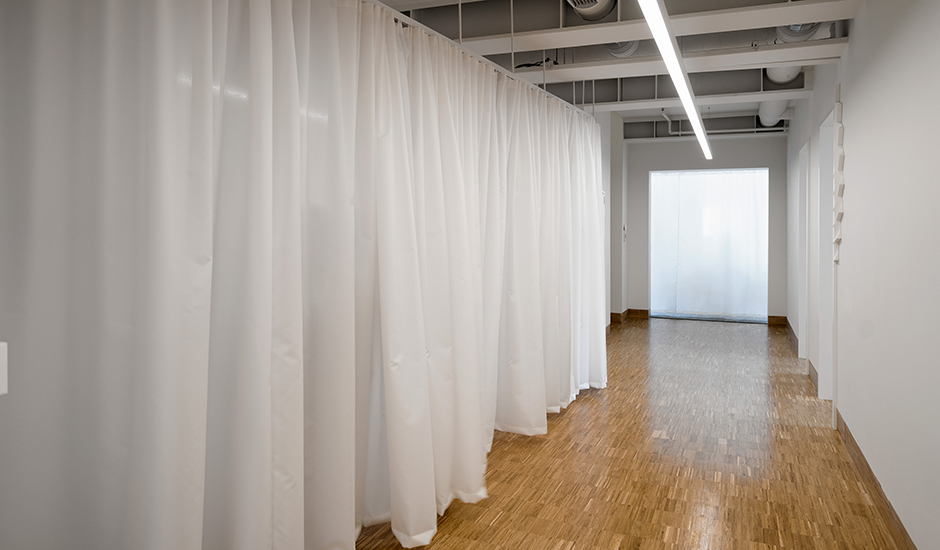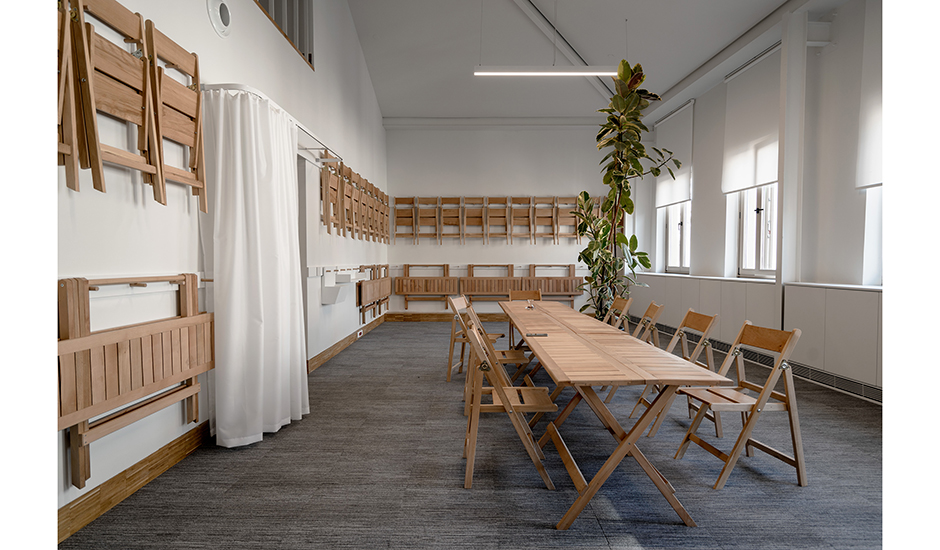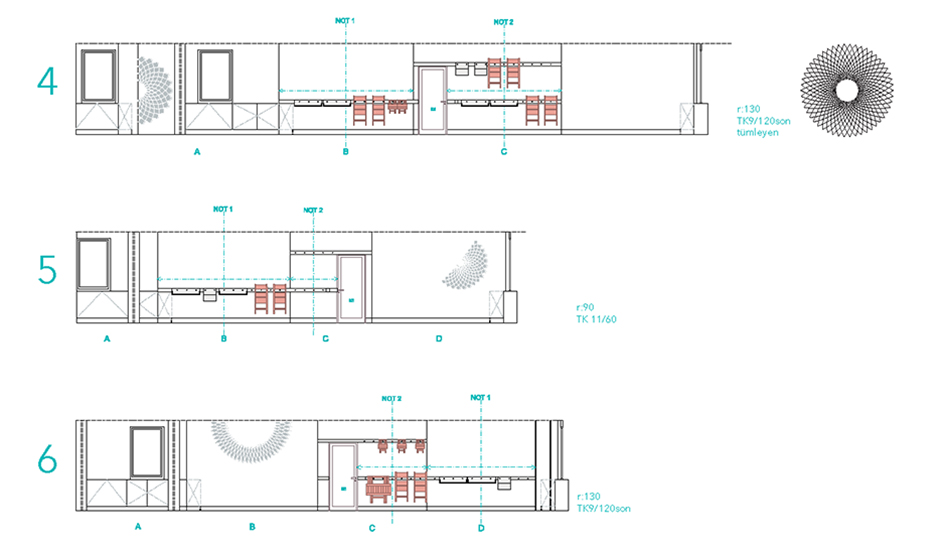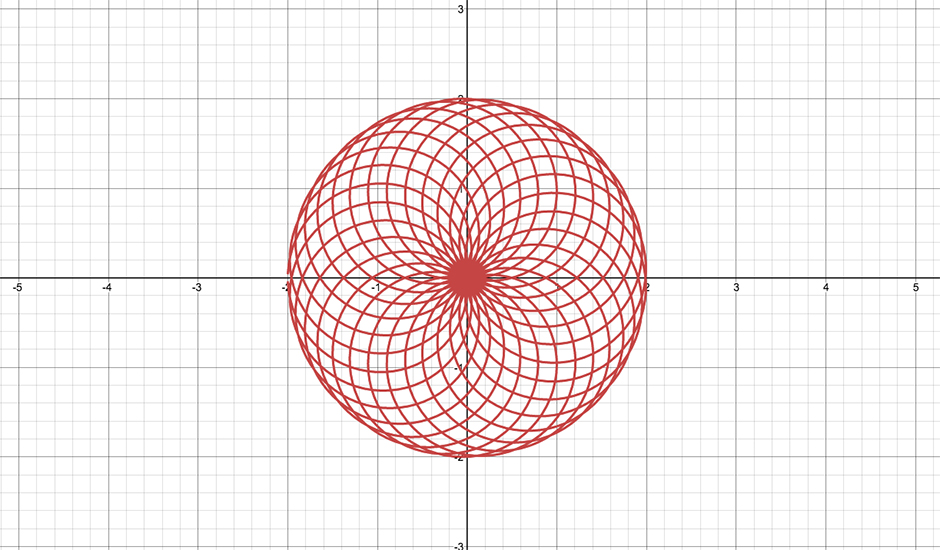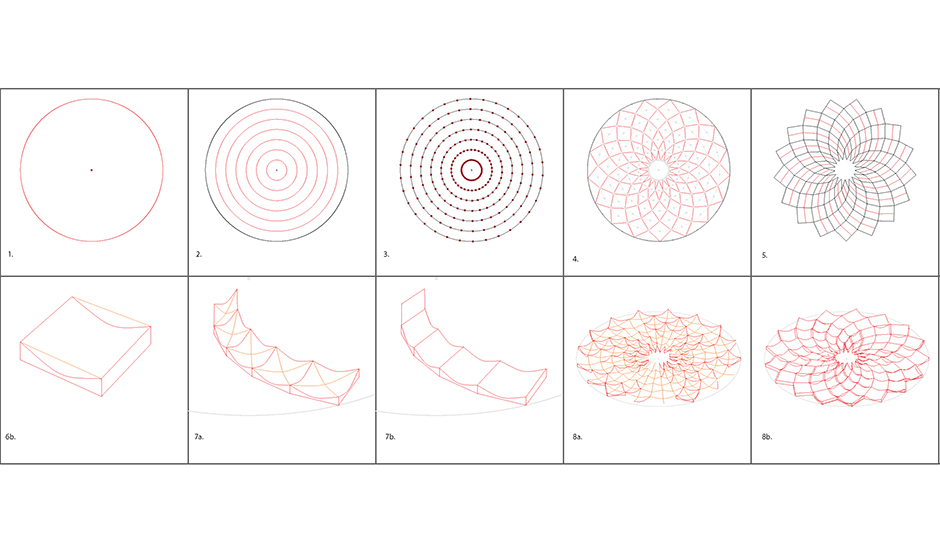Offices, meeting & workshop spaces
Commissioned by: SALT
Location: SALT Beyoğlu, Istanbul, Turkey
Year: 2018
Photography by Ali Taptık, ONAGORE
Process photos by Aslıhan Demirtaş
Almanac of Architecture, Turkey, 2018
Arkitera interview
YAPI
Adjacent to the Winter Garden at SALT Beyoğlu these spaces are designed for visiting researchers as semi-public spaces. Fitting into an already partitioned plan as per the Landmarks Commission approved plan, the design’s main objective is flexibility and simplicity ornamented with the phyllotaxis principle due to the space’s relationship with the Winter Garden. The offices, corridors, ceilings and other surfaces feature variations on geometric and floral patterns, also present in the Winter Garden, along the tradition of ornament making with nature references that can be traced back to the acanthus leaves on Corinthian columns of Ancient Greece. The rooms for visiting researchers are designed as a flexible system that can respond to each researcher’s specific way of working. An homage to the Shaker culture that originated in the USA, the design is based on the principle of ‘hanging on walls’ making use of wooden (hornbeam) pegs installed in the walls for portable desks, tables and chairs to be hung on them to provide a large unobstructed interior space allowing a rich variety of spatial configurations. Widely popular vernacular products were selected as furniture which were then subjected to some minor modifications and variations nevertheless releasing any claims of authorship. Abstaining from redesigning products or intervening with manufacturing processes as one would expect conventionally, the minimally modified versions of the mundane wooden furnitures -supplied from a local manufacturer in Tahtakale- were reintroduced back into the local market and blended anonymously into everyday life becoming an inseparable part of the vernacular practice.
KHORA Office (Aslıhan Demirtaş & Ali Cindoruk)
Design team: Aslıhan Demirtaş, Ali Cindoruk, Dilşad Aladağ, Seçkin Maden, Ayçıl Yılmaz
Site supervision: Emirhan Altuner
In collaboration with:
Robotic production: FABB (Burcu Biçer Saner, Efe Gözen)

